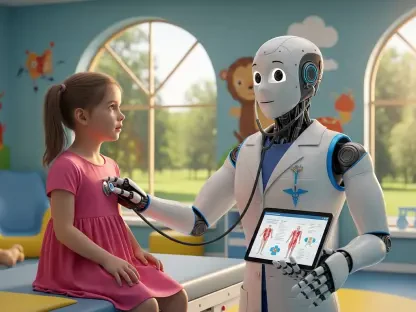The landscape of healthcare is continually evolving, pushing the boundaries of patient care demands and necessitating an improved approach to specialized medical services. Among these emerging demands, palliative and hospice care stand out as an essential area requiring substantial attention and development. As people live longer, often with chronic and life-limiting conditions, registered nurses (RNs) find themselves at the forefront of delivering care that balances medical treatment with compassionate support. In 2025, more than ever before, the intricacies of palliative and hospice care highlight the urgency for RNs to receive advanced training, allowing them to meet the complex needs of patients from diverse backgrounds. This requirement is underscored by the growing number of Americans seeking quality end-of-life care, thereby amplifying the significance of specialized education as a fundamental component in delivering exceptional healthcare.
Expanding Role of Hospice and Palliative Care
In recent years, the scope of hospice and palliative care within the U.S. healthcare framework has broadened significantly, driven by demographic shifts and increased understanding of serious illnesses. Chronic conditions like cancer, heart disease, and neurodegenerative disorders are becoming more prevalent as the population ages, creating a heightened demand for healthcare services that focus not just on physical ailments but also on emotional and psychological well-being. RNs equipped with specialized training are crucial to fulfilling this need, as they are tasked with mitigating both physical discomfort and emotional distress for patients and their families. Throughout palliative and hospice care settings, nurses operate as primary care providers, dedicating their skills to managing symptoms, administering medications, and offering vital emotional support. Comprehensive training helps nurses develop effective communication skills, which are pivotal in discussing prognoses, navigating treatment paths, and coordinating cohesive care plans in collaboration with multidisciplinary teams.
Advanced education for RNs in this field not only reinforces practical skills but also enriches their professional insight, enabling them to serve confidently and effectively when faced with complex medical scenarios. Moreover, nurses are increasingly relied upon to engage in ethical decision-making, aiding patients and families in making informed choices surrounding end-of-life care. This requires an intimate understanding of healthcare protocols and compassion, an area advocated for through continuous education and special certifications. Institutions recognize that the demand for nurses with specialized knowledge is not just an immediate requirement but an integral component in improving patient outcomes and overall healthcare quality. Thus, the emphasis on professional growth through targeted education exemplifies the evolving role of palliative and hospice care as crucial elements in ensuring dignity and comfort for patients in their final stages of life.
Importance of Specialized Training
As RNs navigate the demanding palliative and hospice care landscapes, specialized training becomes a vital asset for optimizing both patient and provider experiences. Training specific to this field equips nurses with strategies to effectively manage pain and symptoms through various medical and non-medical interventions. Moreover, it enhances their ability to support psychological and emotional burdens that patients and their families often experience during these trying times. Educational programs focused on palliative and hospice care broaden a nurse’s communication repertoire, ensuring they convey essential information transparently to patients about prognosis, treatment choices, and comprehensive care plans. Maintaining accurate and empathetic dialogue underpins the nurse’s role in establishing trust and partnership with patients, a cornerstone of effective care provision in any setting.
Professional growth is another significant advantage of pursuing advanced education in palliative and hospice care. By acquiring deeper insights and capabilities, RNs find opportunities for career advancement, potentially stepping into leadership roles and positions with increased responsibility. This specialized education provides access to certifications that validate skills and knowledge in alignment with industry standards, further enhancing a nurse’s credibility and ability to deliver exemplary patient care. Healthcare institutions seek these certified professionals as they strive to deliver top-tier services, recognizing their unique ability to address the multifaceted needs inherent in palliative and hospice environments. Thus, specialized training not only benefits patients through improved care quality but also empowers nurses in their professional pursuits, ultimately contributing to enhanced job satisfaction and personal fulfillment as they adeptly navigate complex healthcare scenarios.
Future of Palliative and Hospice Care Education
The trajectory of palliative and hospice care education is set to evolve significantly, influenced by technological advancements and emerging learning methodologies. The integration of telehealth and online platforms for continuing education exemplifies this shift, offering RNs flexible and accessible avenues to broaden their expertise. Accredited programs and virtual simulations provide realistic, scenario-based learning options that prepare nurses to handle complex medical situations with confidence and proficiency. These innovative educational frameworks not only cater to the growing demand for trained professionals but also reflect healthcare’s transformation towards more efficient, patient-centric models of care. As RNs engage in ongoing education, they become adept at recognizing and responding to the nuances and complexities presented by an aging population with varied needs.
Looking ahead, the significance of specialized training in palliative and hospice care will continue to intensify, underscored by a prevalent aging demographic and increasing chronic illness rates. Educational institutions and healthcare providers alike acknowledge the critical role nurses play in delivering exceptional care and facilitating ethical, informed decision-making. Future programs will emphasize the importance of empathy, cultural competence, and interdisciplinary collaboration, ensuring nurses are prepared to offer holistic support to patients and families. As these educational opportunities expand, so does the potential for enhanced healthcare delivery that champions dignity and compassionate care at all life stages. Consequently, the commitment to continuous learning transforms nursing practice by equipping RNs with the skills necessary to effectively manage the dynamics of care environments and provide superior patient experiences.
Addressing Workforce Challenges
In the U.S., hospice and palliative care have expanded due to demographic changes and greater understanding of serious illnesses. As chronic conditions like cancer, heart disease, and neurodegenerative disorders become more common with an aging population, there is an increased demand for healthcare services that prioritize not just physical health, but also emotional and psychological well-being. RNs with specialized training are essential in addressing this need, tasked with alleviating physical discomfort and emotional distress for patients and their families. Nurses in these settings are primary care providers, managing symptoms, giving medications, and offering vital emotional support. Their training enhances communication skills crucial for discussing prognoses, exploring treatment options, and coordinating care plans with multidisciplinary teams. Targeted education strengthens their expertise, enabling nurses to navigate complex scenarios confidently. Additionally, their role in ethical decision-making is vital, guiding patients and families in informed end-of-life choices, thus ensuring dignity and comfort in final stages.









